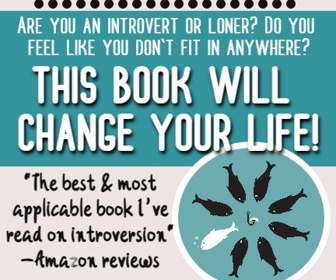I’m sure that you are guilty of comparing yourself to others – just like I am and everyone else is. To some extent, it is a natural behavior for human beings. But there comes a time when these comparisons become unhealthy and hurt your mental wellbeing.
Some people claim that a certain degree of competitiveness can push you towards greater achievements. You see those around you succeed and work harder to reach and surpass them. Makes sense, right?
However, if you are prone to comparing yourself to others and practice it on a regular basis, it can do more harm than good.
First of all, let’s discuss the dangers of this mental habit. After that, we will focus on the ways to stop unhealthy comparisons.
5 Hidden Dangers of Comparing Yourself to Others
1. A self-esteem killer
The most obvious consequence of unproductive comparisons is that they make you feel bad about yourself.
When you compare your failure to someone else’s success, it inevitably takes a toll on your self-esteem. You begin to feel worthless, inadequate, and disappointed with yourself. You cease to believe in yourself. It feels like you are doomed to fail, and nothing can change that. This is when your inner critic is getting really harsh.
But the truth is that we often compare our lows to other people’s highs, which is totally pointless. Yes, your co-worker just got a promotion, but it doesn’t mean that you can’t do this too. It’s his moment of glory, and yours is yet to come.
2. Unhealthy emotions
Not just your self-esteem, but your overall mental health suffers when you compare yourself to others. Damaging emotions such as envy, anger, and bitterness cloud your mind. Not only do they impair your judgment, but they also hurt your mental and physical health.
This is totally counterproductive. Instead of doing your job and working hard to achieve your goals, you waste your time hating other people and moaning about the unfairness of life.
3. Wrong company
In the process of striving to get better than those around you, you may begin to drift away from your friends and family. You may try to surround yourself with more successful people, as many popular self-help guides suggest.
While there is nothing bad about this piece of advice, it has one hidden danger – you may end up in the wrong company.
If you are concerned only about people’s job positions and titles, you neglect the truly important things. Thus, instead of being surrounded by like-minded friends, you hang out with the people who are not the right company for you.
The same might happen if you do the opposite and surround yourself with people who are less capable than you are in an attempt to increase your damaged self-esteem.
4. Fake life
This is a real plague of today’s society, which is driven by social media. If you compare yourself to others all the time, you are never satisfied. Someone will always be younger, prettier, and more successful than you are.
Thus, you may too begin to build a fake façade to appear richer, smarter, and more attractive than you are. And I’m not talking only about uploading photoshopped selfies to your Facebook profile.
You might pick a hobby or activity you don’t really enjoy or make a career change you are not happy about just because this is what the people you envy do.
5. Wrong path in life
The most dangerous consequence of all is that you may end up walking the wrong path in life. Yes, this may happen if you focus too much on comparing yourself to others.
You see, negative emotions such as envy and anger are a strong driving force. If you yearn to be better than someone you know, you may end up chasing this person’s goals. You may give up on your dreams and lose your individuality in the process.
Thus, you will turn into a pale imitation of someone else. Yes, you may finally beat them, but will it make you happy? No, I strongly doubt that.
How to Stop Comparing Yourself to Others

Now, the question is, how do you quit this damaging habit? Let’s discuss a few ways to put an end to unhealthy comparisons.
1. Practice gratitude
Taking our accomplishments for granted is something most of us do, especially in moments of failure. It’s easy to write off your achievements and neglect your positive qualities when life gets tough.
That’s why being aware of your assets along with being grateful for what you already have is a powerful tool for emotional resilience and healthy self-esteem.
The easiest way to practice gratitude is to make a list of your achievements, talents, skills, and good personality traits. When you feel tempted to compare yourself to others because of failure, re-read this list.
Recall every triumph in detail and reflect on every good quality you have, and you will immediately feel a flood of positive emotions running through your veins.
2. Watch for your triggers
We all have our ‘buttons’. You may feel unsatisfied with certain aspects of your life or personality, which makes you compare yourself with the people who are a ‘success’ in this area.
For example, you might feel triggered by someone’s career success, physical appearance, or family happiness. Observe your reactions and take notice when you feel inferior to someone or resentful about the things other people have.
Being aware of your triggers will help you get to the root cause of your self-esteem issues and overcome the need to compare yourself to other people.
3. Be conscious about using social media
Humans always compared themselves to others – it’s in our nature. However, in today’s era of vanity cultivated by social media, this normal human behavior has taken really ugly forms.
It looks like there is an ongoing contest on social media networks like Instagram and Facebook for who shows off more. Whose selfies are the most photoshopped and who tells the most lies.
If you have low self-esteem, it’s easy to fall for the illusion that other people live remarkable lives, compared to yours. Their social media profiles are full of fancy selfies from trips, parties, and events. They have the happiest relationships and tons of friends.
But what stays off social media is the truth that most people live pretty ordinary lives. They love and hate; sometimes, they are really happy, and sometimes, their hearts get broken. They get bored and lonely, just as you do.
Don’t fall for good-looking photos and captivating status updates. You never know what battles your online friends fight and how happy or successful they actually are. Therefore, it makes no sense to compare your real life to their fake façade.
In reality, they might be far less lucky than you are.
4. Don’t believe everything people say
The need to show off is not exclusive to social media. You can face this behavior in the real world too.
You might have a co-worker who returns to work with a new incredible story after every weekend or a friend whose love life could become an inspiration for a romance novel. So you listen to them and wonder how it is that your life is so dull and monotonous.
But ask yourself: can you be 100% sure that these people tell the truth? There are so many pathological liars and insecure people who try to impress others that you can’t be certain about anything.
It could be that you compare your real self to another person’s lies.
5. Turn competition into inspiration
The need to compare yourself to others may also stem from a competitive personality. And it’s not a necessarily bad quality. If you are motivated by other people’s success, you can use it to your advantage.
When you get envious of someone’s triumph, the trick is to prevent yourself from feeling like a failure. Instead, use it as an inspiration and visualize your future success.
Your natural reaction may be to compare your situation to this person’s, but don’t give in to bitterness. Tell yourself something like,
‘My moment of glory is yet to come, and I’m working hard to make it happen’.
6. Change your perspective

Finally, it makes sense to remember a few sobering truths about comparing yourself to others. They will help you change your perspective when you feel the urge to compare yourself to others.
- No one is perfect. If someone appears to be so, then they are most probably just putting up a good show.
- Most people have insecurities, just as you do. Most people compare themselves to others and feel inadequate from time to time.
- If you are addicted to comparing yourself to others, you will never feel satisfied. There will always be something that other people have and you don’t, no matter how rich, attractive, or successful you grow to be.
- You don’t know the whole truth about other people. You know nothing about the cost they had to pay for the things they have.
- Everyone has a different starting point in life, but you can always strive for better things. What’s the point in comparing yourself to a ‘golden child’ from a wealthy family?
Don’t Compare Yourself to Others – It’s a Waste of Time
To sum up, comparing yourself to others is counterproductive and pointless. If you are a competitive person, use it to motivate yourself and get inspired by successful people.
If you have self-esteem issues, practice gratitude and self-acceptance. You can read about it in more detail in this article about not feeling good enough.
After all, everyone is different, so it only makes sense to compare the current version of yourself to the previous one.



